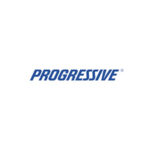Should Pharmacists Have Liability Insurance? A Comprehensive Guide for New York Pharmacy Owners
Hey there, New York pharmacy owners! If you’re wondering whether it’s essential to have liability insurance for pharmacists, you’ve come to the right place. In this guide, we’ll break down everything you need to know about the importance of liability insurance for pharmacists and why it’s crucial for protecting your business and professional reputation.
Understanding Liability Insurance for Pharmacists
Let’s start with the basics. Liability insurance is like a safety net for pharmacists. It’s there to protect you in case something goes wrong while you’re doing your job. Whether it’s dispensing the wrong medication or providing incorrect dosage instructions, liability insurance can help cover legal fees and any damages awarded in a lawsuit.
- Protection Against Lawsuits: Pharmacists are at risk of facing lawsuits from patients or their families alleging medication errors, dispensing mistakes, or adverse drug reactions. Liability insurance for pharmacists can help cover legal defense costs, settlements, and judgments in such cases.
- Risk of Professional Errors: Despite best efforts and adherence to strict protocols, pharmacists may inadvertently make mistakes in dispensing medications, interpreting prescriptions, or providing medication counseling. Liability insurance for pharmacists can provide financial protection in case of errors or omissions leading to patient harm.
- Regulatory Compliance: Pharmacists are required to adhere to various federal and state regulations governing the practice of pharmacy, including dispensing medications accurately, maintaining patient confidentiality, and complying with controlled substance laws. Liability insurance can help cover fines, penalties, or legal expenses resulting from regulatory violations.
- Protection of Personal Assets: Without liability insurance, pharmacists risk personal financial loss if they are sued and found liable for malpractice or negligence. Liability insurance helps protect personal assets, such as savings, investments, and property, from being used to satisfy legal judgments or settlements.
- Peace of Mind: Having liability insurance provides pharmacists with peace of mind knowing that they have financial protection in place in case of unexpected legal challenges or lawsuits. This allows pharmacists to focus on providing quality patient care without worrying about the potential financial consequences of litigation.
While liability insurance is not mandatory for pharmacists in all jurisdictions, it is considered a prudent risk management strategy to mitigate the financial risks associated with professional liability exposure. Pharmacists may obtain liability insurance individually or through their employer, professional association, or a specialized insurance provider catering to healthcare professionals. It’s important for pharmacists to carefully review their insurance policies, understand the coverage limits and exclusions, and ensure that they have adequate protection tailored to their specific practice settings and risk exposures.
Types of Liability Insurance Relevant to Pharmacists
- Pharmacist Professional Liability Insurance: Also known as malpractice insurance, this type of coverage is specifically designed to protect pharmacists against claims of negligence or errors in their professional duties.
- General Liability Insurance: This broader coverage protects against claims of bodily injury or property damage that occur on your pharmacy premises.
- Pharmacy Business Insurance: Before you open your doors to customers, it’s essential to familiarize yourself with the insurance requirements specific to pharmacies in New York. State regulations dictate mandatory insurance coverage to protect both your business and your customers.
- PBMs require Network Pharmacy Provider hold policies for general and professional liability insurance, including malpractice, in amounts necessary to ensure that Network Pharmacy Provider and any of its personnel are insured against any Claim(s) for damages arising from the provision of Covered Prescription Services; such policies must have coverage, at a minimum, in the amount of one million dollars ($1,000,000.00) per person and three million dollars ($3,000,000.00) in aggregate or greater, unless otherwise agreed to by Administrator or such greater amount required by law.
Legal Environment for Pharmacists in New York
New York has its own set of pharmacy regulations and laws, and pharmacists here face unique liability risks. From strict dispensing regulations to potential legal challenges related to medication errors, pharmacists in New York need to be aware of the legal landscape and take steps to protect themselves.
Reasons Why Pharmacists Should Consider Liability Insurance
Now, let’s dive into why liability insurance is a must-have for pharmacists in New York:
- Protection Against Malpractice Claims: Mistakes happen, even to the most diligent pharmacists. Liability insurance provides crucial protection in the event of a malpractice claim, covering legal expenses and any damages awarded.
- Mitigation of Financial Risks: Without insurance, pharmacists could be on the hook for hefty legal fees and damages, which could devastate their finances.
- Safeguarding Professional Reputation: A malpractice lawsuit can tarnish a pharmacist’s reputation, making it difficult to find work in the future. Liability insurance helps protect your professional standing and ensures that one mistake doesn’t define your career.
Real-Life Examples and Case Studies
Let’s take a look at some real-life scenarios to illustrate the importance of liability insurance for pharmacists in New York:
- Scenario 1: A pharmacist dispenses the wrong medication to a patient, resulting in serious health complications. Without liability insurance, the pharmacist could face a lawsuit that threatens their livelihood.
- Scenario 2: A patient alleges that a pharmacist provided incorrect dosage instructions, leading to an overdose. Liability insurance for pharmacists helps cover the pharmacist’s legal defense and any damages awarded in court.
Factors to Consider When Choosing Liability Insurance
When shopping for liability insurance for pharmacists, there are a few key factors to keep in mind:
- Coverage Options and Limits: Make sure your policy provides adequate coverage for your specific needs, including legal defense costs and damages.
- Cost Considerations: While price is important, don’t sacrifice coverage for a cheaper premium. Look for a policy that offers a balance of affordability and comprehensive protection.
- Reputation of Insurance Providers: Choose an insurance provider with a solid reputation for reliability and customer service. Read reviews and ask for recommendations from fellow pharmacists.
Addressing Common Concerns and Misconceptions
Let’s address some common concerns and misconceptions about liability insurance for pharmacists:
- Misconception: “Liability insurance is too expensive.” While premiums vary depending on factors like coverage limits and deductible amounts, the cost of insurance is minimal compared to the potential financial consequences of a lawsuit.
- Concern: “I’ve never had a claim before, so I don’t need insurance.” Even the most experienced pharmacists can make mistakes. Liability insurance provides peace of mind knowing that you’re protected, regardless of your track record.
Conclusion
In conclusion, liability insurance is a must-have for pharmacists in New York. It’s a small investment that can provide invaluable protection against the unexpected. Don’t wait until it’s too late – explore your options and secure the coverage you need to safeguard your business and professional reputation. Remember, it’s better to be safe than sorry!












